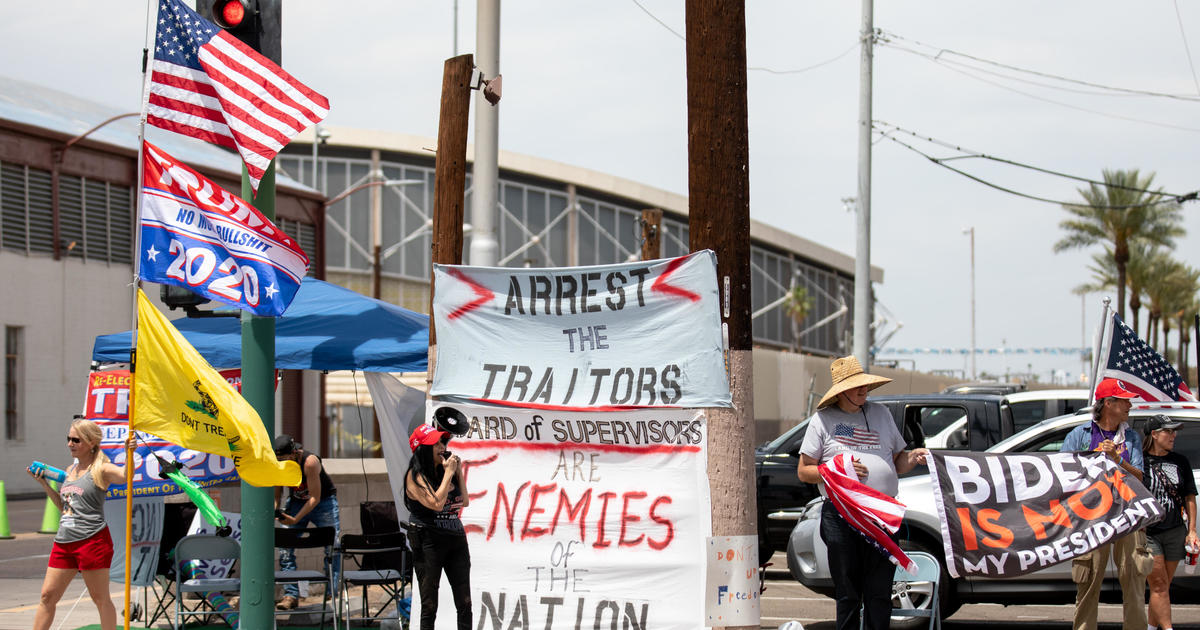House Democrats release 2 more transcripts of testimony in impeachment inquiry
Washington — The three House committees that led the first phase of the impeachment inquiry released transcripts of closed-door testimony from two more witnesses on Wednesday.
Philip Reeker, an assistant secretary of state in the Bureau of European and Eurasian Affairs, testified behind closed doors on October 26. Mark Sandy, an official at the White House Office of Management and Budget (OMB), appeared several weeks later, on November 16.
The transcripts show Sandy raised concerns about the legality of the delay in hundreds of millions of dollars in military aid to Ukraine. He told lawmakers the first formal implementation of the hold came on July 25 — the same day as President Trump's phone call with the president of Ukraine, in which Mr. Trump urged him to investigate the Bidens and conspiracy theories about the 2016 election.
Sandy also testified that he knew of at least one OMB lawyer who was frustrated by the delay and subsequently resigned.
Reeker testified about the "outrageous smears and attacks" against Marie Yovanovitch, the former ambassador to Ukraine who was recalled from her post after a campaign to discredit her led by Rudy Giuliani and Ukrainian officials.
Sandy's testimony
Sandy told lawmakers he first learned about the hold on aid on July 12, when an official in the White House chief of staff's office informed OMB that "the President is directing a hold on military support funding for Ukraine." The delay was made official on July 25 — the same day of Mr. Trump's now-famous call with Ukraine's president. OMB issued what is called a written apportionment with a footnote restricting the obligation of the funds on that day.
But it took weeks for Sandy to become aware of any justification for the hold at all, despite repeatedly asking for one. It wasn't until early September, Sandy testified, that the president first asked OMB for information about how much other countries have contributed to Ukraine. And it wasn't until after the hold was lifted that Sandy was given the justification that other countries provided insufficient aid as a reason for the hold.
Sandy was also told that Michael Duffey, the associate director for national security programs at OMB, was taking over responsibilities of the hold due to "interest among the leadership in tracking the issues of moneys closely."
Multiple federal entities advised Acting OMB Director Russell Vought to lift the hold, Sandy said. A memo dated August 7 argued that assistance to Ukraine is consistent with the U.S. national security strategy of supporting a stable, peaceful Europe.
Sandy testified that he raised possible legal concerns after learning about the hold. He told the committee he made a "general reference" to the Impoundment Control Act, which governs the release of funds appropriated by Congress, in a discussion with Duffey.
If those funds are not obligated before September 30, Sandy told the committee, "they basically expire and they return to the Treasury," and a failure to obligate those funds in a timely fashion could be a violation of the law.
Sandy said he knew of at least one OMB attorney who was worried about potential legal ramifications and resigned at least in part over the hold on assistance to Ukraine.
Sandy said he had never seen a hold on aid like this one.
"I do not recall another event like it," he said.
Reeker's testimony
Reeker testified that Giuliani had "denigrated the whole embassy" in Ukraine, including Yovanovitch, and that the smears had led to her dismissal. Reeker said there was an "understanding" that Giuliani was feeding Mr. Trump "a lot of negative views about Ukraine."
Reeker also discussed the frustration among some officials with Ambassador to the EU Gordon Sondland's expansive role in helping to formulate Ukraine policy. He said Sondland was "very involved in working directly with Zelensky."
Reeker said he asked Undersecretary of State David Hale why Sondland was "so involved" in forming Ukraine policy. He said Hale told him "the Sondland angle is irregular."
After the May 23 meeting with Mr. Trump and several officials, Reeker said it was clear that Kurt Volker, Rick Perry and Sondland would be "the three leads" for Ukraine policy.
"Gordon was very clear in that, that 'the president asked me to do this,'" Reeker said.
Separately, Reeker also said it was his understanding that acting chief of staff Mick Mulvaney was responsible for the hold on Ukrainian assistance.



